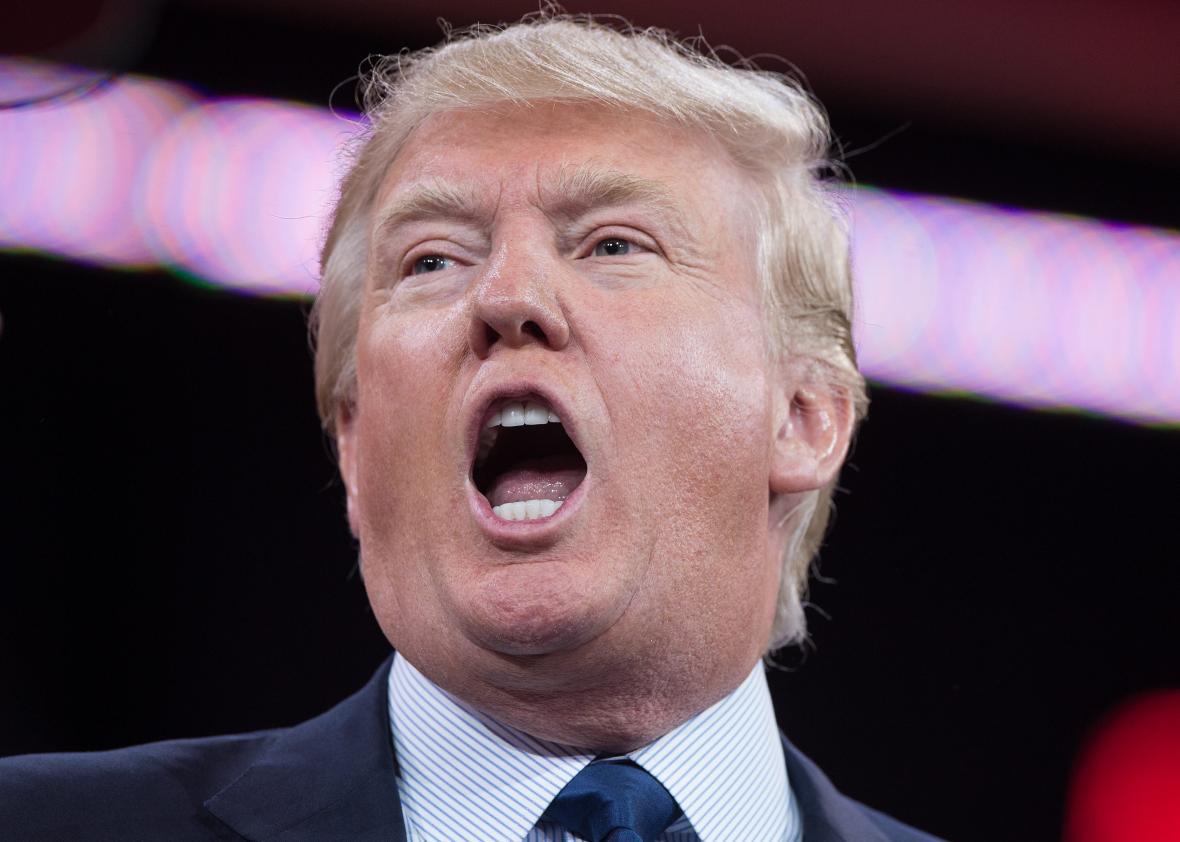Conservatives hoping to keep Donald Trump from turning the first Republican presidential debate into a complete circus might just get their wish. Either that, or they’ve just given the business mogul and former reality TV star another reason to stick around well into the fall, if not beyond.
The Washington Post is reporting that Fox News has clarified the criteria for participation in the first GOP debate in such a way that Trump and most of his fellow candidates will have to file their personal financial disclosures before the debate or be kept off the stage. That’s unlikely to be a serious problem for the vast majority of the GOP field, but it will back Trump into a corner.
“As we have said from the beginning, part of that criteria involves filing ‘all necessary paperwork with the [Federal Election Commission],’” Fox News vice president Michael Clemente said in a statement. “The FEC, as is well known, requires that presidential candidates file a financial disclosure statement as part of that paperwork.” Under federal law, presidential candidates have 30 days from when they officially launch their campaigns to file. But candidates can, and often do, request and receive as many as two 45-day extensions—something most Trump watchers believed he would do as way to prolong his campaign without giving the world a closer look at his finances. While Clemente’s statement didn’t explicitly say candidates couldn’t use those extensions, the Post’s sources say that will indeed be the case. “They must fill out the form, putting the dollars and cents on the table, before they step on the debate stage,” one source told the paper.
For his part, Trump said during his campaign launch last month that he won’t be asking for any extensions—“We’ll be filing right on time”—although the media has treated that claim with the dubiousness it deserves. If he doesn’t ask for an extension, Trump would have until July 22 to file his disclosure. If he does file, the world will get a rare firsthand look at his business empire, the exact worth of which remains very much in debate. If he would have been allowed to take his extensions by Fox, he would have been able to take part in the debate and still drop out of the race later this year without ever having to declare how much he’s actually worth as opposed to how much he claims to be worth.
Fox News is stressing that it hasn’t changed the criteria, and instead is simply clarifying them. That move appears designed to allay the GOP establishment’s fears about Trump without giving the impression that the conservative network—which rarely misses an opportunity to bring Trump on the air—is bowing to the party’s demands. Jeb Bush and Ted Cruz, though, had already reportedly requested their own extensions, suggesting at the very least that their campaigns were unaware of Fox’s strict reading of the rules until today. (Meanwhile, it’s unclear if any candidate who launches his campaign between now and the Aug. 6 debate—say Scott Walker or John Kasich—will have to file before then or if they can participate without doing so since their original 30-day window will not have expired.)
Of course, predicting what The Donald will do and what he won’t is a bit of a fool’s errand at this point—and backing him into a corner may only make him more unpredictable. Given the damage his presidential campaign has already done to his business dealings, he may simply decide he’s sacrificed too much to turn tail and run before seizing the spotlight in Cleveland and the free PR that comes with it. Perhaps even more troubling for the GOP establishment, then, is that if Trump does file in time to take part in the first debate he’ll have one less reason to drop out anytime in the foreseeable future.
Previously on the Slatest:
